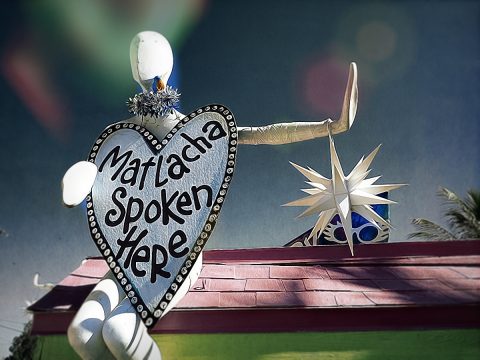Recently I tried to write a story about a son dealing with the death of his father. It wasn’t as successful as your piece. The premise you’ve established in “Sometimes My Father Comes Back from the Dead” is at the core of its success. How did this idea of a dead father returning to the home develop?
My dad had a health scare over the holidays and spent a week in the ICU. Maybe I’d been trying to sort some things out. I don’t know. The day I sat down to write, I caught a whiff of wood smoke that put me in mind of him—and of being a kid, hauling in firewood some long lost winter. And I thought, “This is how the dead come back.” And then the title flashed in my mind, a kind of stand-alone thought. Sometimes that happens to me—lines suggest themselves, and I listen for anything in them that sounds provocative or interesting. Or in this case oddly funny. Once I had the title, I thought, “Okay, what kinds of things can happen now?”
Another aspect of your piece that drew me in was your title. It’s clear and surprising, and also establishes context. How important are titles?
I’ll just say that I love titles. I love how they’re bound up with the pleasures of reading. I love how they promise things, allure, mystery. The quirky. The profound. There’s clearly an art to them. I like saying titles out loud. “Sonny’s Blues,” “The Enormous Radio,” “I Stand Here Ironing.” Just saying them out loud, there’s this feeling of anticipation for the revelations to be had inside, for worlds about to unfold, open up, maybe explode.
Part of me wants to call this a ghost story, but I’m not sure if that fits. Did you think about genre at all when writing this piece?
Literature is full of people coming back from the dead. Jesus. Hamlet’s father. Harry Potter. The trope is played out. And yet. The things that become cliché become cliché for a reason. So I guess if I gave myself any restrictions it was just to subvert cliché at every turn. A dead father comes back, you think: “Oh, he’s trying to make up for the sins of the past.” Nope. He forgot his car keys. A dead father comes back, you think: “This will be life changing for the son.” Nope. It’s just breakfast again. Instead of the narrator discovering some deep meaning in his father’s life and death, he finds humor in it. In very short fiction you get a lot of torque from messing with a reader’s expectations. A reader expects one thing, then something else happens.
Are there other authors who write in this space or aesthetic that you admire? Any authors or stories that might’ve served as an inspiration?
Back in the 90s I wore out my copies of Sudden Fiction and Sudden Fiction International. I used to read the stories out loud, memorizing the cadences of certain sentences. Internalizing them. T.C. Boyle’s “The Hit Man” comes to mind. “The Hit Man is stalking the streets of the city.” And Barthleme’s “The School” with its lists of ever-more improbable deaths. And Russell Edson’s “Dinnertime.” And “No One’s a Mystery” by Elizabeth Tallent. “Mother” by Grace Paley. Jamaica Kincaid’s “Girl.” The way these stories made me feel so much in such limited space—when I write short, that’s the spirit I’m after. I want my fiction to be a thank you to those writers.
I appreciated that this story was short and precise. You got in and got out (much like the father). Do you usually work in these small spaces, or are you also working in longer forms? And what are the challenges of each?
I’ve got a failed novel in the drawer, and a failed novella—both of which taught me about structure and movement, and both of which were incredibly helpful when I finally wrote and published a 200-page memoir. I like the workaday quality of longer projects. Day in and day out, you produce. Maybe you edit while you go but the emphasis is on the going, on words on the page, on sections, chapters, progress. You try not to make yourself too sick about whether it is any good…but then again, what’s the answer to worrying about the story’s worth? Working on it. When I’m writing a longer piece, I feel crazy and heroic and torn asunder. And I love that. I love the weird sense of purpose it gives me to be working on a project that is so big, so all or nothing.
Then at the same time—the very short story. The freedom of discovering something completely new and idiosyncratic, of following impulses, of leaps of the imagination that are moments in the making rather than months! The freedom of dashing something off. Fragments. Encounters. And for these stories to work…the meticulous skill and care required! The profound dedication to something so small and self-contained! It’s kind of ridiculous actually. But it’s pure—and strange. What was William Carlos Williams’s question? What thing has a shape like this thing? When I’m listening for some title or line to suggest itself, when I’m listening to the rhythms of sentences pounding themselves out—I don’t know. It’s a chance to step beyond myself and become those things. To become a discovery. Maybe in a very short story I give myself more fully to the transformation because I don’t have as many professional expectations of it. But that out-of-body sensation writing can give—that’s what I’m here for.



 A SmokeLong Summer 24!
A SmokeLong Summer 24!